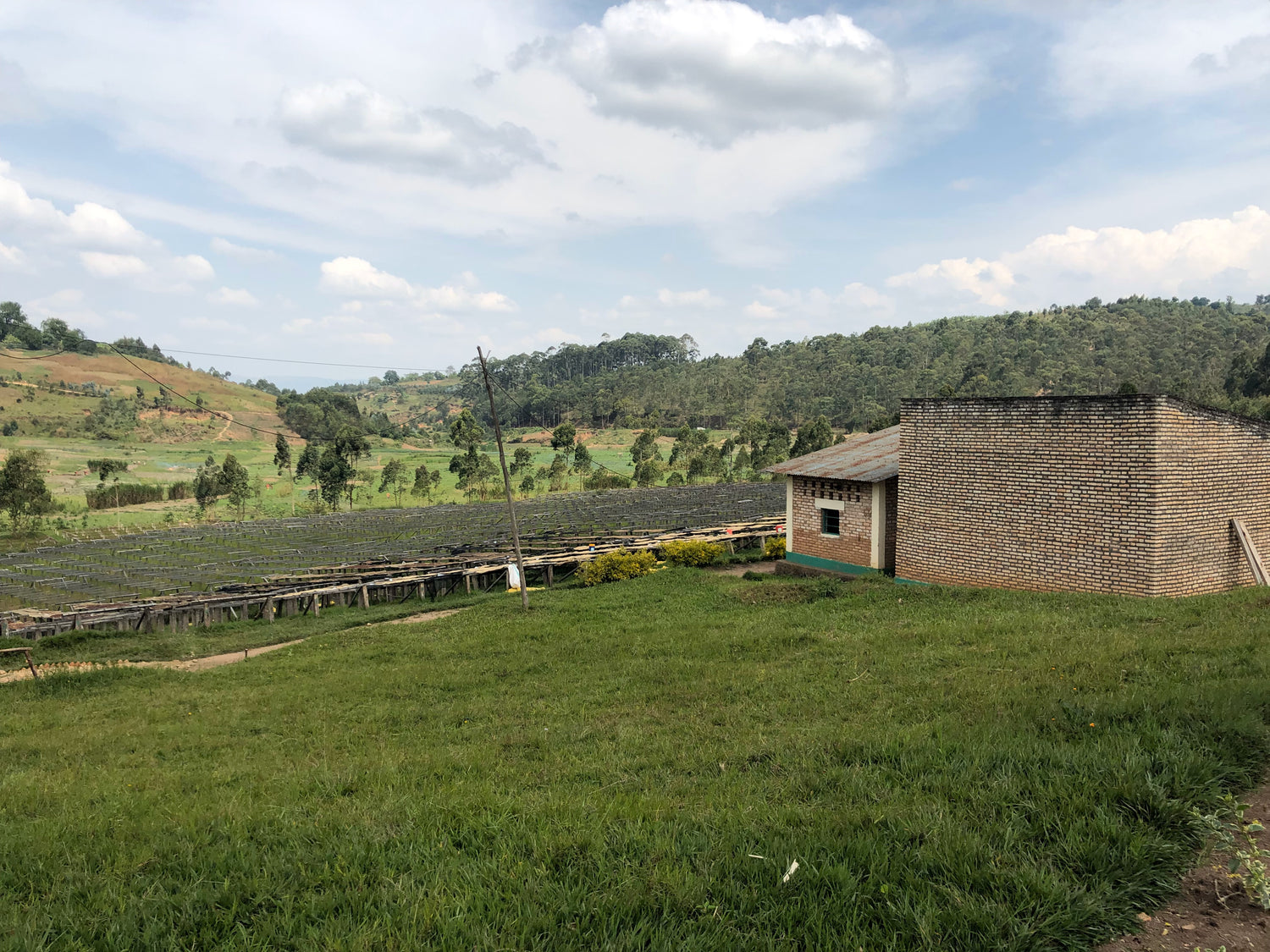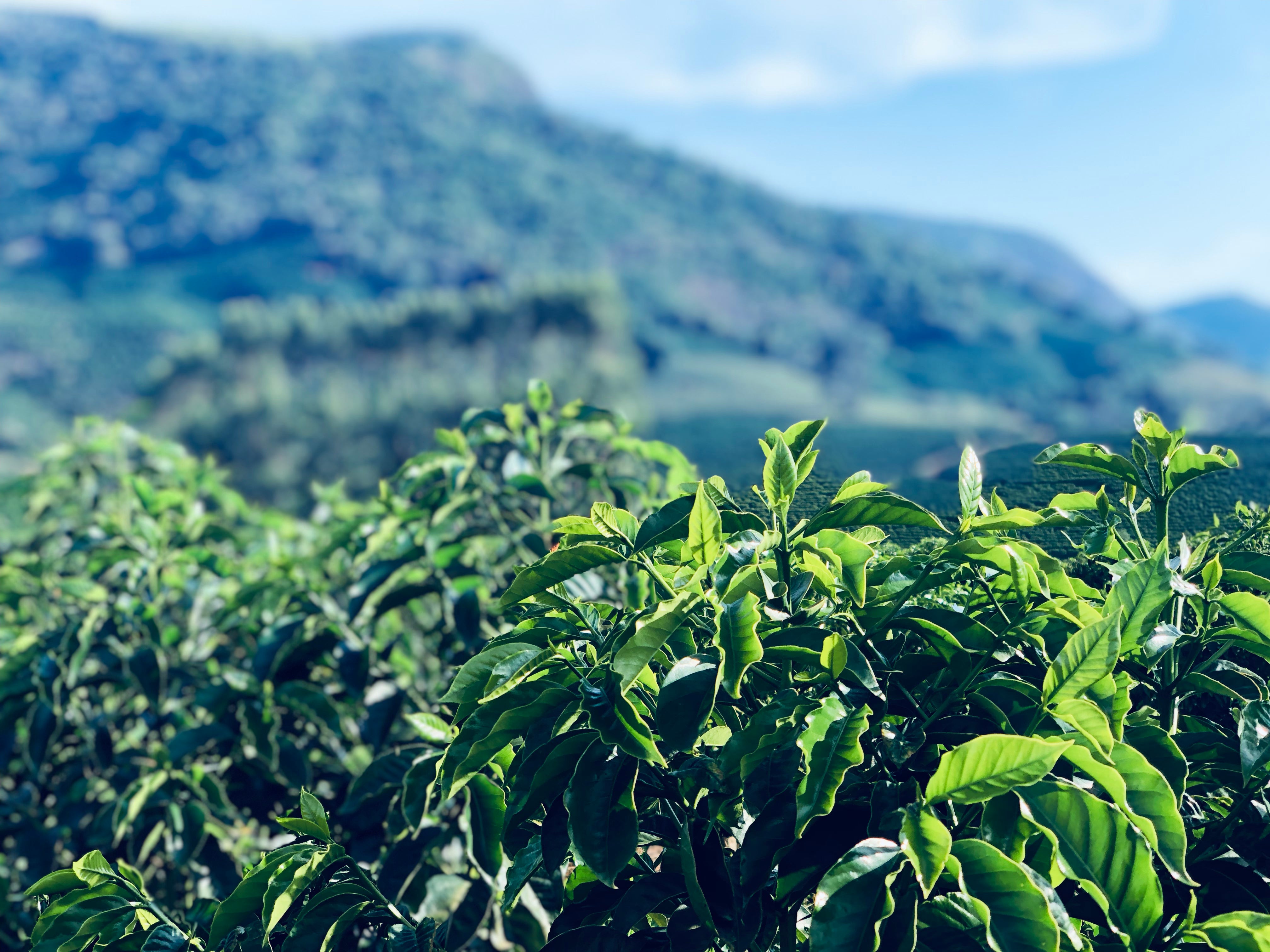Coffee has been grown in Burundi since the sixties, from before gaining independence from Belgium and before the devastation of the civil war in the 1990s. Only in the past two decades has the country, looking towards neighboring Rwanda’s revitalization successes in the sector, truly committed to establishing itself as a source of high-quality, specialty coffee. Today the country is capable of producing beautiful coffees full of deep red fruit flavors and with acidities which rival those prized in the best Kenyan coffees.
Coffee cultivation here, like much of the continent, is entirely small-holder based. Each producer owns an average of less than even a single hectare of coffee plants. Their fruit is delivered to centralized dupulping and washing stations, either privately held, or government-run within the SOGESTAL system. A farmer will make several small deliveries over the course of the season, as the fruit ripens at different timeframes, and it will take many hundreds or thousands of deliveries and producers to create a finished product “lot.”
This style of production and purchasing makes it impossible to arrive at single-producer or single-farm lots (though they are almost always single-variety, as the overwhelming majority of plants in the country are red bourbon). Instead, coffee is sold under the appellation of the washing station from which it was processed. This does not mean that all coffee appearing in the market under a single name is created equal — different quality tiers, day lots, and processing batches will lead to a spectrum of quality coming from a single station. This is a relatively new development for Burundi’s coffee development and a wonderful thing for specialty coffee drinkers, as the most beautiful coffees are no longer blended into the mass for a single, homogenous export product.
The Gahahe Coffee Washing Station is located in the Gatara Commune within the Kayanza Province. It is one of a total 21 stations operating in the area, one of the most potentialed growing regions in the country. Here, at elevations in excess of 1,800 meters above sea level (the mill itself sits at precisely 1,805 masl), with mild temperatures averaging 65 degrees Fahrenheit, and with well-defined rainy periods (peaking in April and wrapping up before July, when the best of the harvest is drying on raised beds), the conditions are ideal for producing slowly-matured, dense, delicious coffee fruit.
Gahahe is owned and operated by Greenco, a sister company of our importing partner Sucafina. 1,771 producers are registered with the station and regularly deliver coffee cherry during the harvest. The communication of educational resources and implementation of rigorous quality standards is crucial. All producers are organized in groups of 30 people, headed by a farm leader who will help teach and maintain best growing practices, as well as act as a spokesperson and advocate for the group with the station’s management. At the station, farmers can receive organic fertilizer made from converted coffee pulp. To promote farm renovation (replacement of aging trees), producers can buy low-cost, subsidized coffee seedlings from Gahahe’s nursery.
At delivery, the coffee is screened by the producer and mill employees to ensure successful ripe-targeting during harvest before being weighed and recorded for payment. The red, perfectly ripe cherry deliveries are combined in tanks before being mechanically depulped on a Macnon pulper. The coffee, now in mucilage-covered parchment, is fermented in dry tanks for 12 hours before being pushed through washing and grading channels. The heaviest, highest quality coffee will sink in the channels, isolated, and soaked in tanks for a further 24 hours. On pre-drying tables, where the bulk of the free moisture will drain, another team of station staff will perform further sorting, removing any defects which may have snuck through the color and density screening. Moved to raised drying beds, conducive to the free circulation of air, the coffee (still in parchment, but without the mucilage removed in fermentation and washing) is spread thinly for uniform drying, and turned frequently. A batch will reach an ideal 12% moisture in an average of three weeks.
The dry mill, also run by Greenco, is the final crucial stage in guaranteeing quality. The coffee is milled of its parchment, and hand sorted one final time. Before bagging for export, the coffee will also pass through an optical sorter which checks for previously missed defects and inconsistencies under a UV light.
Coffee cultivation here, like much of the continent, is entirely small-holder based. Each producer owns an average of less than even a single hectare of coffee plants. Their fruit is delivered to centralized dupulping and washing stations, either privately held, or government-run within the SOGESTAL system. A farmer will make several small deliveries over the course of the season, as the fruit ripens at different timeframes, and it will take many hundreds or thousands of deliveries and producers to create a finished product “lot.”
This style of production and purchasing makes it impossible to arrive at single-producer or single-farm lots (though they are almost always single-variety, as the overwhelming majority of plants in the country are red bourbon). Instead, coffee is sold under the appellation of the washing station from which it was processed. This does not mean that all coffee appearing in the market under a single name is created equal — different quality tiers, day lots, and processing batches will lead to a spectrum of quality coming from a single station. This is a relatively new development for Burundi’s coffee development and a wonderful thing for specialty coffee drinkers, as the most beautiful coffees are no longer blended into the mass for a single, homogenous export product.
The Gahahe Coffee Washing Station is located in the Gatara Commune within the Kayanza Province. It is one of a total 21 stations operating in the area, one of the most potentialed growing regions in the country. Here, at elevations in excess of 1,800 meters above sea level (the mill itself sits at precisely 1,805 masl), with mild temperatures averaging 65 degrees Fahrenheit, and with well-defined rainy periods (peaking in April and wrapping up before July, when the best of the harvest is drying on raised beds), the conditions are ideal for producing slowly-matured, dense, delicious coffee fruit.
Gahahe is owned and operated by Greenco, a sister company of our importing partner Sucafina. 1,771 producers are registered with the station and regularly deliver coffee cherry during the harvest. The communication of educational resources and implementation of rigorous quality standards is crucial. All producers are organized in groups of 30 people, headed by a farm leader who will help teach and maintain best growing practices, as well as act as a spokesperson and advocate for the group with the station’s management. At the station, farmers can receive organic fertilizer made from converted coffee pulp. To promote farm renovation (replacement of aging trees), producers can buy low-cost, subsidized coffee seedlings from Gahahe’s nursery.
At delivery, the coffee is screened by the producer and mill employees to ensure successful ripe-targeting during harvest before being weighed and recorded for payment. The red, perfectly ripe cherry deliveries are combined in tanks before being mechanically depulped on a Macnon pulper. The coffee, now in mucilage-covered parchment, is fermented in dry tanks for 12 hours before being pushed through washing and grading channels. The heaviest, highest quality coffee will sink in the channels, isolated, and soaked in tanks for a further 24 hours. On pre-drying tables, where the bulk of the free moisture will drain, another team of station staff will perform further sorting, removing any defects which may have snuck through the color and density screening. Moved to raised drying beds, conducive to the free circulation of air, the coffee (still in parchment, but without the mucilage removed in fermentation and washing) is spread thinly for uniform drying, and turned frequently. A batch will reach an ideal 12% moisture in an average of three weeks.
The dry mill, also run by Greenco, is the final crucial stage in guaranteeing quality. The coffee is milled of its parchment, and hand sorted one final time. Before bagging for export, the coffee will also pass through an optical sorter which checks for previously missed defects and inconsistencies under a UV light.








Leave a comment
This site is protected by hCaptcha and the hCaptcha Privacy Policy and Terms of Service apply.